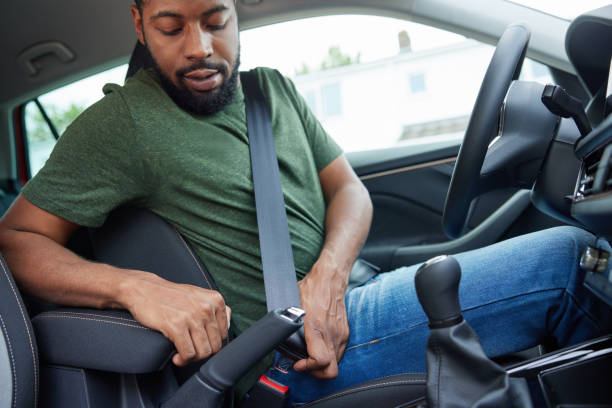No matter what kind of vehicle you drive, don’t forget to wear your seat belt. Seat belts can decrease the risk of suffering from severe injuries, or worse, should an accident occur. It’s especially crucial for workers in the trucking and delivery industries.
If you are injured in an auto accident while working (truck driver, pizza delivery, construction related driving, nurses in the field, etc.), and you are not wearing a seat belt at the time, you might be denied benefits by your employer. In Virginia, this issue is considered a “willful violation” of a known safety rule under the Virginia Workers’ Compensation Act (§ 65.2-306 of the Code).
In a recent unpublished opinion of the Virginia Court of Appeals, the Court said that a delivery driver’s claim could be denied due to his willful failure to wear a seatbelt resulting in injuries related to his failure to comply. If the claimant is aware that he violated state law at the time of the injury, this is considered a “willful failure or refusal to perform a duty required by statute” (§65.2-306 A(4). The medical evidence further showed that his injuries were “proximately related” to his failure to wear a seatbelt.
If the injury is unrelated to wearing a seatbelt, it’s still possible to obtain workers’ comp benefits. For instance, if an accident is so severe that the injuries occurred regardless of using a seatbelt, it’s possible to recover workers’ comp benefits. Having an experienced law firm such as the Law Office of Darren Shoen in these situations provides invaluable help in getting through a traumatic situation.
In most motor vehicle accidents, any injuries resulting from the accident would be attributed to not wearing a seatbelt—trauma from being ejected, jostled around the cab of the vehicle, etc. There is an easy way to avoid having your claim denied due to failure to wear a seatbelt—buckle up!
The statements contained herein are for general information purposes only and are not considered specific legal advice to your situation as Mr. Shoen would need to meet with you individually to ensure client confidentiality and would need additional information not provided in this article. This article does not create an attorney-client relationship. Please consult directly with an attorney for legal advice.

